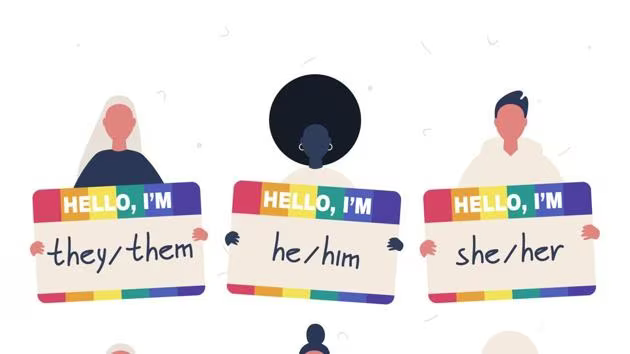Gendered language is not just an annoyance. It can harm

Facebook’s 71 gender options, including the two-spirit person, are a stretch. But “they”, used by singular non-binary gender identity people, was Merriam-Webster’s word of 2019 and India has recognised “other” as an official gender since 2014(Shutterstock)
Last week, my friend Kanta Singh took issue with a retired bureaucrat for his tweet on how civil servants must “evolve in a manner that those who want to corrupt him aren’t able to muster the courage to do so. His conscience must be his firewall”.
Kanta’s objection wasn’t the content. “Will request you to write a more inclusive language,” she tweeted. The objection is not irrelevant. Of the 700 officers working in the central government at the joint secretary level and above as of June 2019, 134 (19.14%) were women.
The use of the male pronoun to describe a group ends up invisibilising women. God is a solid, upper case He. And he/him/his are default settings for all manner of truisms: “A man is the sum of his actions,” (Mahatma Gandhi) or, “Technology is the nature of modern man,” (Octavio Paz) — but “mankind” excludes half of humanity.
Facebook’s 71 gender options, including the two-spirit person, are a stretch. But “they”, used by singular non-binary gender identity people, was Merriam-Webster’s word of 2019 and India has recognised “other” as an official gender since 2014. Yet, we instinctively veer towards gendered language.
Even newer words reinforce bias: Mompreneurs (ever heard of dadpreneurs?) and career women, never career men. Girl boss infantilises women and reminds us that bosses are male unless otherwise stated. Stay-home dads are hailed as exceptional unlike stay-home moms who seem to follow an inbuilt biological code.
Those who fight for equal rights are feminazis, a word that belittles not us but the victims of the Holocaust. If you object, of course, you’re a humourless feminist, or worse, a rabid one.
And, yet, women have their own words too. Manel should shame event organisers who can’t find equally qualified women to invite. I prefer “unpaid care work” to the homier “housework” to describe the endless labour of cooking, cleaning and caring done predominantly by women.
Gendered language is not just an annoyance. It can harm. In his book, Discretion, Discrimination and the Rule of Law, Mrinal Satish studied 100 Supreme Court and 700 high court rape cases to find judgments peppered with words like “concubine”, “shocking liar”, “honour” and even “deathless shame” to describe rape survivors.
A Karnataka High Court judge’s comments on the behaviour of a rape survivor — it was “unbecoming” of an Indian woman to fall asleep after being “ravished” — while hearing a bail matter merely followed a long tradition of sexist language in court judgments. But the uproar was new and led to the welcome expunging of his remarks.
Meanwhile, Hindustan Unilever has been mulling over words, too. In an apparent nod to the Black Lives Matter movement as well as sustained agitation against a product that exploits gendered norms of beauty, the makers of Fair & Lovely cream, declared that it was dropping the word “fair”. The renamed product: Glow & Lovely. The change in nomenclature isn’t fooling anyone. Fair by any other name still remains “fair”.
Namita Bhandare writes on gender
The views expressed are personal